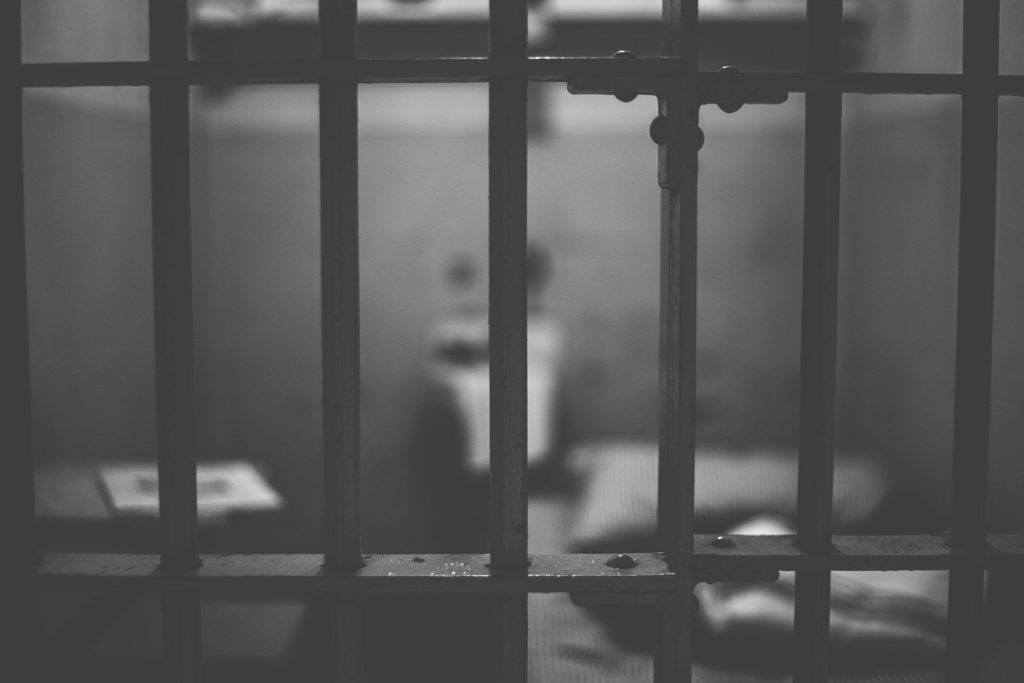As pressure on prison capacity in Flanders continues to rise, an annual report by its monitoring board that tracks how prisoners are treated has called for fewer prison sentences and more alternative sentences.
The Centrale Toezichtsraad voor het Gevangeniswezen (Central Supervision Board for the Prison System) warned in its recently-published report that, despite the measures taken to relieve pressure during the pandemic, overcrowding continues to cause "a lot of problems and inconveniences, for management, prison staff, and for detainees."
"This was a missed opportunity to tackle overcrowding structurally," Marc Nève, the board's chairman, told VRT News.
As part of a temporary solution in response to the health crisis, the prison population in Flanders was decreased by around 1,000 prisoners throughout the pandemic, either through early release or through extended leave.
As a result, on 12 March, there were still 10,906 prisoners for a capacity of 9,327 places, and on 1 May, there were only 9,561 - the lowest occupancy rate ever achieved.
These measures, according to Nève didn't cause any problems, leading him to call for Belgium to take initiatives not to punish certain crimes with a prison sentence.
"The hope that the prison population could be drastically reduced and that imprisonment would only be a last resort has finally become reality," the report stated, adding that "political will, coupled with the commitment of all Justice actors, has made it possible to release or detain hundreds of people without risk to security."
According to the report, however, the entry into force of an article passed in 2019, which will implement custodial sentences of three years or less from 1 December 2021, will put further pressure on prison capacity and add to the "already existing overcrowding within the prison system."
The board called on the Federal Justice Minister, Vincent Van Quickenborne, to control the growth of the prison population without increasing existing prison capacity by taking required measures to promote alternative sentences, and recommended that judges and prosecutors be made aware of their role in the fight against overcrowding.
Improving mental health
The lack of space in prisons was exacerbated by the coronavirus pandemic as it became impossible to maintain social distance - one of the most important measures in the fight against the virus - whilst the lack of hygiene in certain institutions made the problem more acute.
In some cases where fellow detainees became infected, prisoners were forced to isolate in cells not intended for that purpose (e.g. punishment cells or secure cells), due to lack of space.
"Prisoners experienced this exceptional situation and the accompanying measures as imprisonment, even though they were initially intended to protect them. A double punishment," the report stated.
Although this resulted in the level of infection being lower in prisons than in the general population, it also added to the sense of physical isolation and social, psychological and emotional losses in the prisoners.
"In addition to their imprisonment, many of their rights have been placed 'on hold', such as the right to work, the right to psychological and psychiatric assistance and, above all, the right to visits and to maintain family ties," Nève said.
The report stressed that increased levels of anxiety, stress, frustration, loneliness and purposelessness among prisoners and their families that were reported as mental health issues were not considered as great a risk as the virus.
The board has called for an evaluation to be carried out, looking at the implementation and application of the rules it has introduced to deal with the crisis, whilst pleading for pilot projects for the psychological support and therapeutic counselling of prisoners who need it as a result of the pandemic.

